Cornell hockey is what will be on the minds of those wearing carnelian and white. This is the way it should be. The Class of 2014 bade adieu to its tenure on East Hill without winning either a national championship or a Whitelaw Cup. This result places them among the slimmest of minorities of classes that have graduated from Cornell hockey in the modern era. No matter how conscious it may be, the Class of 2015, like some of its similarly situated predecessors, wants to avert a similar fate.
None of this is to say that the Class of 2014 did not contribute to the championship pedigree of Cornell hockey. The Class of 2014 became the first graduating class in seven years to bring more than one Ivy League Championship to East Hill. The seniors from that class became the 23rd class to claim more than one Hobey Baker Trophy. This current group of seniors is champions already in that regard. It stands as the 24th class to win more than one Ivy League Championship.
Fairly or not, it was not winning Ivy League Championships that etched the names of Stanowski, Tufford, Dryden, Lodboa, Marrett, Tredway, Nieuwendyk, Chartrand, Elliott, Paolini, Scott, and Scrivens into the collective mind of the Lynah Faithful. National and ECAC Hockey championships are the only instruments that strike with the requisite force. This team, and the senior class in particular, recognize this reality. They embrace it. John McCarron, The Captain, acknowledges semi-regularly the weight that the Lynah Faithful put on winning the Whitelaw Cup.
This season embodies this class' quest to reach its fullest potential. No matter what, their tales, including McCarron's and Ryan's leading Cornell to reinsert itself into a national tournament game against Michigan, will be told by those who witnessed them firsthand. However, will the next generation feel as though it witnessed the moments and have their names recalled with considerable ease like Lodboa's hat trick or Paolini's goal?
Such recognition is what this senior class, one of the five elite classes from its recruiting year, seems all but preordained to bring. Yet, with one season remaining, it has not left its permanent mark on the program in a way that demands remembrance by the collected whole. Destiny against reality is the struggle and main storyline of this season.
The Class of 2015 is among the most talented classes to have played at Cornell. Talent in itself does not ensure success. The Classes of 1967, 1968, 1969, and 1970 fulfilled on their promises. What of the other years of talented greats of Cornell hockey? The members of the Classes of 1977, 1978, 1978, and 1991 constitute among the most talented offensive and defensive players in the history of the program. What percentage of the Faithful can recall their marks?
Of the 13 unique players that fill the ranks of the top 10 all-time goal scorers and point producers, five never won a championship. Vaughan, Nethery, Cullen, Andison, and Derraugh reside less in the forefront of minds than do Doug Ferguson and Joe Nieuwendyk. This category includes all-time leading point producer Lance Nethery of the Class of 1979 and all-time great defenseman Pete Shier of the Class of 1978. Shier is the second-most prolific goal-scoring and point-producing blueliner in the history of the program.
Cole Bardreau, Madison Dias, Joel Lowry, Jacob MacDonald, John McCarron, and Joakim Ryan want their legacies to be more than statistical and anomalous. This is their season. The guiding storyline is their deep understanding of the traditions of their program and their aspirations to pen more chapters than they have already within its annals.
The intrigue of this season penetrates far deeper than this overarching narrative. This team has the chance to be history-making in many regards. In Joakim Ryan, Cornell has the best two-way defenseman in the nation. He is as responsible on the back end as he is potent on the front. Will he challenge the legacy of the "Bobby Orr of college hockey," Dan Lodboa, as the only defenseman to lead Cornell in goals and points?
Schafer has remarked that Ryan's offensive game has improved during the off-season. The chance of Ryan reaching heights unseen in recent memory for an offensive defenseman at Cornell is a real possibility. However, will Joel Lowry enjoy an injury-free senior season in which he will be able to combine his flashes of skill and grit to lead the Big Red in scoring as many know he can? Even though the senior class will lead this squad, Ryan and Lowry will face offensive challenges from underclassmen.
Jared Fiegl has done nothing short of dazzle crowds in preseason contests. His talents tease the possibility that he may be an immediate contributor and one of the most talented freshmen in the nation. Bar none. John Knisley showed considerable improvement in his offensive panache during the Big Red's swing through Europe. Expect the Pittsford native to fill some perceived offensive voids early, and often.
Freshman-sophomore maturation will serve well this team. Matt Buckles, Jeff Kubiak, and Patrick McCarron showed during the late goings last season that Cornell could count on them in their times of need. Buckles and Kubiak connected to rally against Cornell's archnemesis. Meanwhile, Patrick McCarron potted 16.7% of the Big Red's playoff goals as a freshman. The Faithful can expect Patrick McCarron to put at ease concerns that after Joakim Ryan's departure Cornell will have no premiere dual threat blueliners. This proud Red tradition is well guarded in the sophomore defenseman.
Goaltending, as the historic hallmark of Cornell hockey, may raise concerns for some this season. Navigating the early dynamics of a tenuous platoon and finding a go-to starter may be rocky, but in Mitch Gillam, who is the embodiment of calm consistency, and Hayden Stewart, who can extinguish an opposing team's chance with a flare of unorthodoxy, Cornell has the options to carry this team as far as this team and its senior class desire. The team appears to be negotiating this sometimes contentious situation amazingly well which makes ultimate success a more likely outcome.
Changing lines and special-teams combinations make it difficult to afford too much weight to preseason contests. Cornell's special teams will need to be, well, Cornell-like if this season is going to be a success. Nebraska-Omaha has allowed just two power-play goals in four games and 19 opportunities. Minnesota State scored both of those tallies. Those Mavericks of the Minnesota variety own the 21st-best power-play unit in the nation. The Mavericks of Omaha rely on their power play for less than one-third of their offensive output. A lot will be gleaned about Cornell's special teams during this series.
The goaltender whom Cornell likely will confront is Ryan Massa. The Big Red are familiar with him. He tended the pipes in Omaha during the second game of last season's series. Massa, however, is not familiar with Lynah Rink. Sustained pressure on the ice and in the stands will be imperative to chip away at Massa's impressive 0.939 save percentage. A netminder who has proven himself reliable this season is a worthy challenge for a roster loaded with talent that needs to prove last year's moribund offensive production is a thing of the past.
Gone are offensive threats Archibald, Montpetit, and Walters from Nebraska-Omaha's arsenal. Zombo remains and carries with him a letter. It is interesting to note that the stick of Ortega has directed half of Nebraska-Omaha's power-play goals. Guentzel rounds out the group of three that contributes 60% of the Mavericks's offense.
That is enough about the opposition. It is time for this team to take the ice and begin taking the respect it craves. The last two national postseasons have given rise to an anxiety of inaction. This weekend, Cornell needs to take strides, no matter how big or small, toward alleviating this uneasiness. Cornell has been one of the best teams in the nation over the last three seasons. Once over that span, it proved it. Twice, it has been denied the opportunity.
Will the end point be Boston? One cannot be certain. Nonetheless, the talent of this senior class and the team that it leads makes it seem a distinct possibility. Could there be a better stage than Boston on which to imagine John McCarron or Cole Bardreau proclaiming a definitive end to this wait and acknowledging the contributions of those players, championship-winning or too easily overlooked, as why Cornell could again reach complete greatness? Games, months, and changes of season remain between then and now, but as we think of the boundless potential of this team and the success and memories that we want to share with it over the coming months, we find ourselves wanting it for them as much as we want it for ourselves.

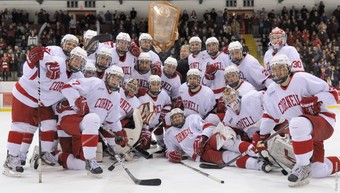
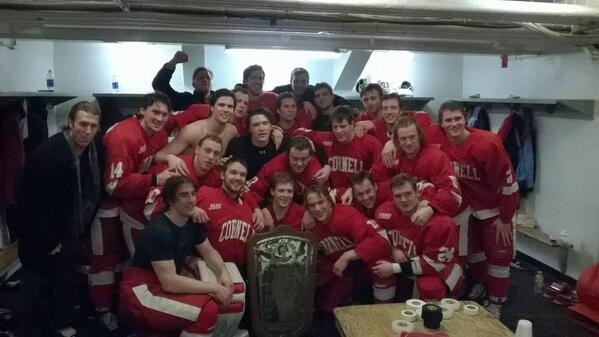
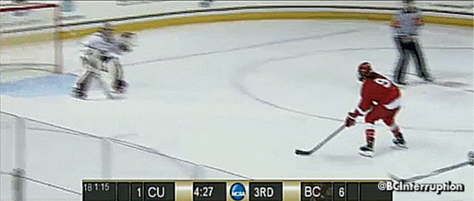
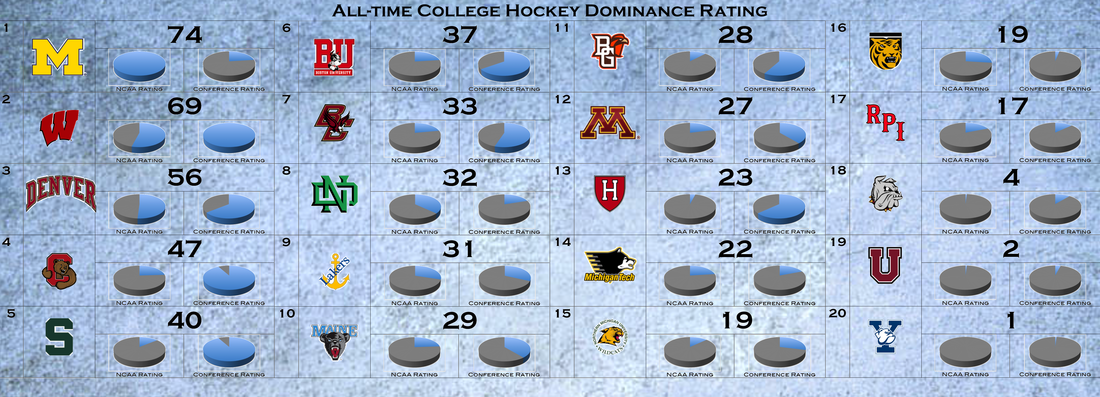
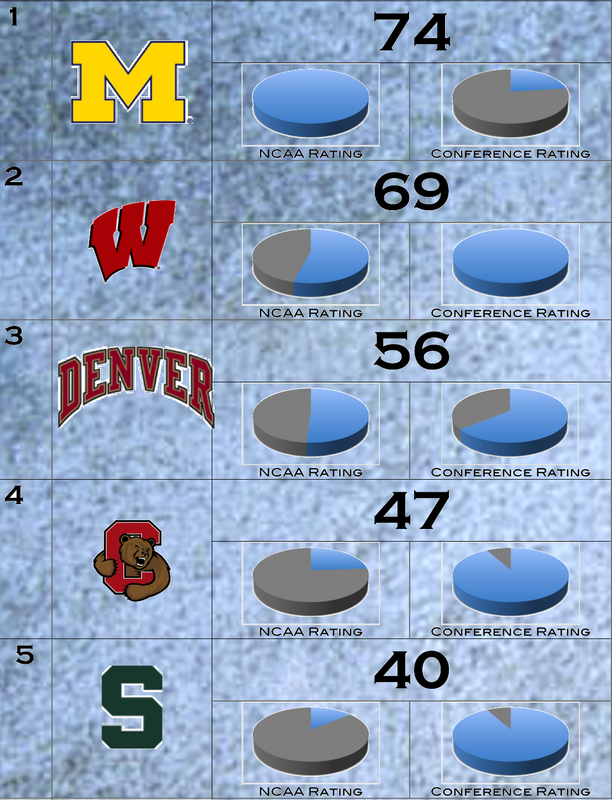
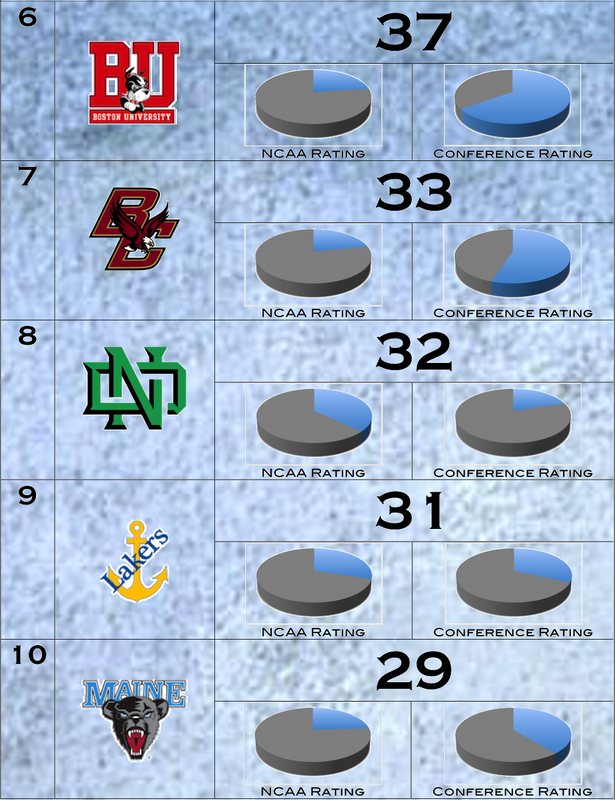
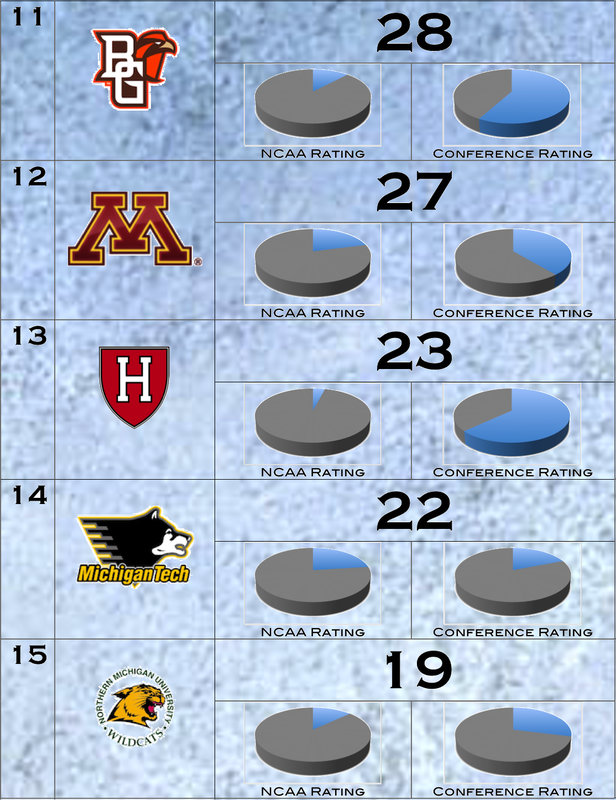
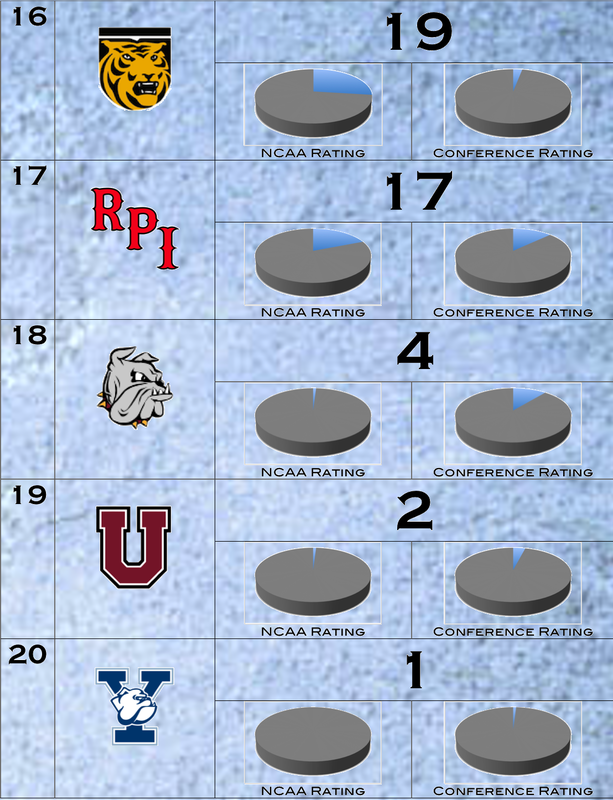
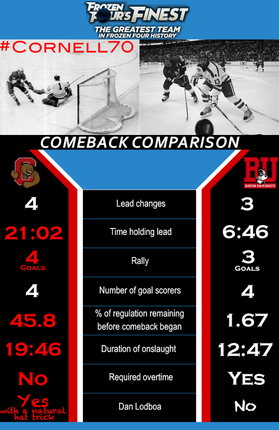
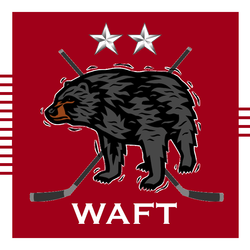

 RSS Feed
RSS Feed
